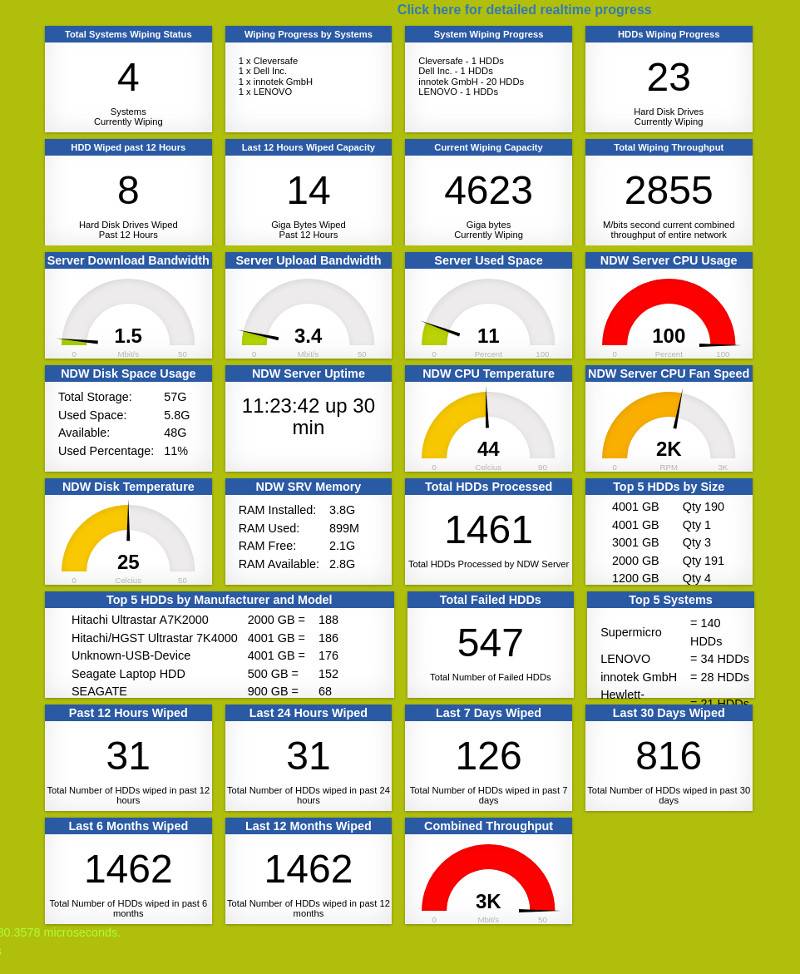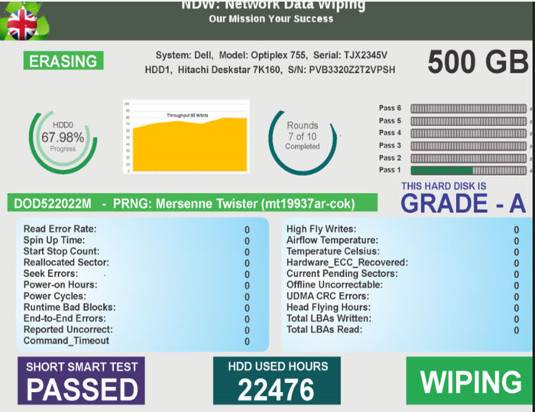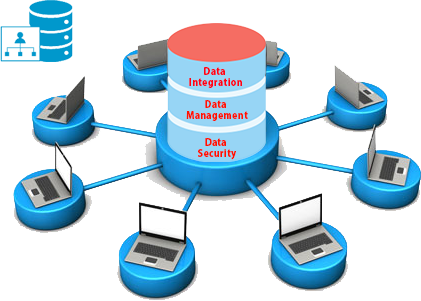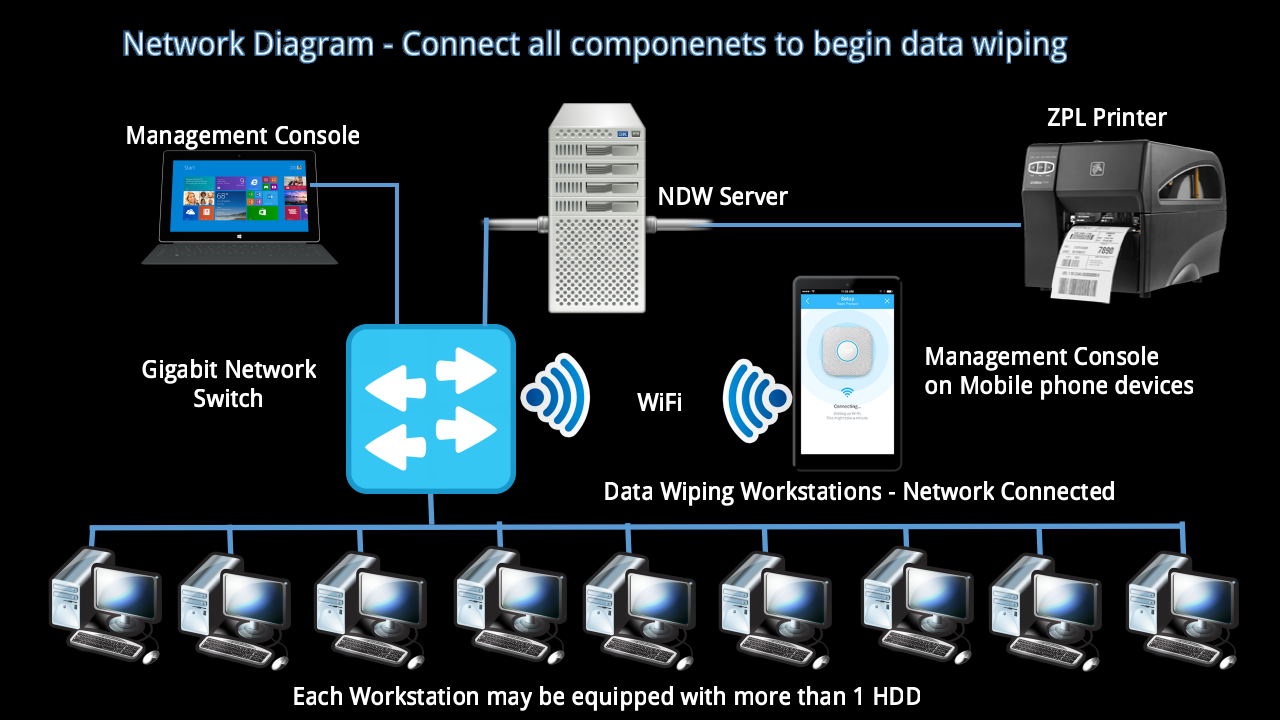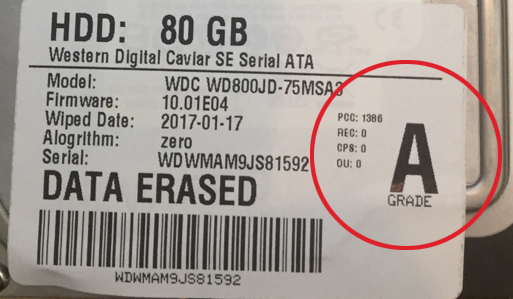Why retired HDDs Data must be wiped clean to avoid data security breaches
Data security is a critical aspect of modern business operations. With the increasing reliance on digital information and the growing threat of cyberattacks, organizations must prioritize the protection of their data to avoid financial loss, reputational damage, and legal consequences.
Data is often referred to as the lifeblood of an organization, as it drives decision-making, improves efficiency, and enhances collaboration. Therefore, its protection should be taken seriously.
The Risks and Challenges of Data Security
Today's enterprises face numerous risks and challenges when it comes to securing their data. Some of the key challenges include:
Mushrooming enterprise data footprints: The exponential growth of data makes it more difficult to manage and secure effectively.
Inconsistent data compliance laws: Organizations operating in multiple jurisdictions must navigate a complex landscape of data protection regulations.
Increasing data longevity: As data storage technology improves, organizations must ensure the long-term security and integrity of their data.
To address these challenges, businesses need a comprehensive data security strategy that incorporates people, processes, and technologies. This strategy should include measures such as access control, encryption, and regular data backups.
The Role of Data Wiping in Data Security
One aspect of data security that is often overlooked is the proper disposal of data storage devices. When organizations upgrade their hardware or retire old equipment, they must ensure that any data stored on these devices is securely erased to prevent unauthorized access.
Data wiping is the process of permanently removing data from a storage device, making it unrecoverable. This process is more secure than ordinary data wiping, as it uses software to overwrite the existing data with random patterns, making it virtually impossible to recover.
The Adverse Impact of Discarded and Leftover Data Storage Devices
Discarded and leftover data storage devices can pose a significant risk to data security. If not properly erased, these devices may contain sensitive information that could be accessed by unauthorized individuals, leading to data breaches and other security incidents.
To mitigate this risk, organizations should implement a robust data disposal policy that includes the secure erasure of all data storage devices before they are decommissioned or repurposed. This policy should also address the proper handling and disposal of physical devices to prevent them from falling into the wrong hands.
The Benefits of Great England Software's NDW
Great England Software's Network Data Wiping (NDW) software is a leader in the field of data wiping, offering a range of benefits for businesses looking to enhance their data security:
Automation: NDW allows for the automated wiping of large numbers of hard disk drives (HDDs) concurrently, saving time and resources for organizations with large data storage infrastructures.
Barcode Labeling: NDW automatically grades each data storage device based on its wear and tear, as well as the presence of bad sectors, and prints a barcode label for easy identification and tracking.
Data Security: By securely erasing data from HDDs, NDW helps organizations protect their sensitive information and comply with data protection regulations.
Efficiency: The ability to erase multiple HDDs concurrently allows organizations to streamline their data disposal processes and improve overall operational efficiency.
Why Businesses Should Use NDW
There are several reasons why businesses should consider using Great England Software's NDW for their data wiping needs:
Enhanced Data Security: By securely erasing data from HDDs, NDW helps organizations protect their sensitive information and reduce the risk of data breaches.
Compliance with Data Protection Regulations: NDW's automated grading and barcode labeling features ensure that organizations can easily track and document the secure erasure of their data storage devices, helping them demonstrate compliance with data protection regulations.
Improved Operational Efficiency: The ability to erase multiple HDDs concurrently allows organizations to streamline their data disposal processes and free up valuable resources for other tasks.
Cost Savings: By automating the data wiping process, NDW helps organizations save time and money compared to manual data wiping methods.
Data security is a critical aspect of modern business operations. Organizations must prioritize the protection of their data to avoid financial loss, reputational damage, and legal consequences. Great England Software's NDW offers a range of benefits for businesses looking to enhance their data security, including automation, barcode labeling, and the ability to erase large numbers of HDDs concurrently. By using NDW, organizations can improve their data security, streamline their data disposal processes, and demonstrate compliance with data protection regulations.














